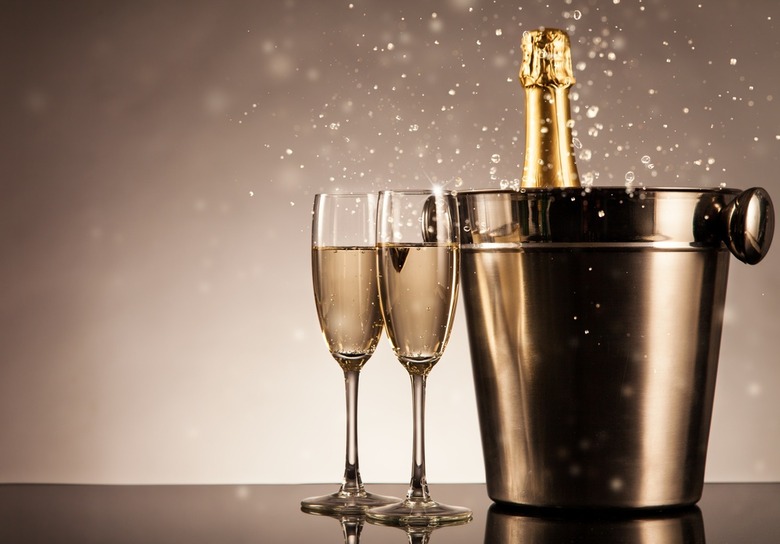A Weekly Champagne Habit Could Reduce Your Risk Of Dementia
A 2013 study from the University of Reading in the U.K., which suggests that drinking up to three glasses of Champagne per week may stave off age-related memory loss and delay the onset of Alzheimer's disease, is the subject of much Internet buzz this week — perhaps because we're not too far from Global Champagne Day, which was on October 23, or National Champagne Day, which, conveniently, is December 31.
The study, which shows that certain phenolic compounds found in Champagne can improve spatial memory — responsible for recording information about one's environment — and "favorably alter" a number of proteins linked to memory storage, does not suggest that you drink Champagne at every meal, but "a very low intake of one to two glasses a week can be effective" at preserving these cognitive functions.
Previous studies have found similar attributes in red wine through flavonoids, but Champagne, which lacks flavonoids, is a relatively new area of study.
However — while the research may sound promising for all lovers of bubbly, the 2013 study was conducted on rats, while human trials are still to come. In rats, improved memory was observed after six weeks, while humans would likely wait years to see the results of a steady Champagne habit.
The paper's lead researcher, professor Jeremy Spencer, told the Daily Mail that the study was important because "it illustrates for the first time that moderate consumption of Champagne has the potential to influence cognitive functioning such as memory." A spokesman for the Alzheimer's Society, meanwhile, cautioned that "a lot more research is needed" before the findings should be used prescriptively.
